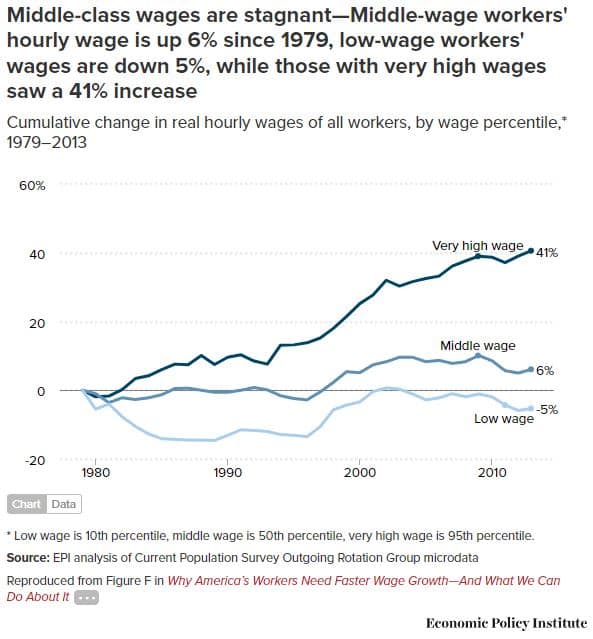Like any sophisticated area of study, the field of personal finance has evolved over the years. Innovative technologies have developed, new investment vehicles have emerged, and consumer attitudes have shifted significantly.
As a result, many modern best practices in personal finance are different from those proposed in previous decades. Analyzing the evolution of personal finance can help you learn some valuable lessons, as can finding the ideas that have stood the test of time.
Q1 2022 hedge fund letters, conferences and more
To that end, I’m going to compare and contrast today’s financial wisdom with the ideas of Sylvia Porter, one of the original finance gurus, in Sylvia Porter’s Money Book: How to Earn It, Spend It, Save It, Invest It, Borrow It – And Use It To Better Your Life.
I know the title is a bit wordy, but the book was one of the most prominent personal finance books in the 70s, and it gives us a convenient framework. Let’s go through her recommendations on those five fundamental skills.
How to Earn
The section in Sylvia’s book that focuses on earning money revolves entirely around optimizing your career path. She spends an entire chapter on how to choose a lucrative, fast-growing occupation, finding job leads, writing cover letters, and nailing interviews.
Sylvia also acknowledges the benefits of a college degree but emphasizes that they’re not necessary for everyone. In fact, she’s quite firm on the stance that you can have a thriving career without higher education, even though credentialism was already on the rise in the 70s.
In some ways, her ideas are familiar. People still love to read about the best career tracks and imagine the possibilities. Modern best job lists focus on the same criteria Sylvia discussed, like potential salaries and the projected growth rate of the market.
However, one difference that jumped out at me was the noticeable absence of side hustle mania that’s rampant today. Sylvia warned readers about going into business for themselves, while modern personal finance is more about building additional income streams than optimizing your primary one.
Side hustling has become mainstream thanks to the invention of rideshare apps, home and auto-sharing platforms, and freelancing websites. More people are branching off on their own than ever before, with roughly 45% of Americans reporting a side hustle in 2021.
???? Fun Fact: Sylvia also claimed that Americans were shifting toward a four-day workweek and that unions were pushing for 1,600-hour work years. She said, “This is a trend virtually sure to prevail in the years directly ahead.” Whoops.
What’s the Takeaway?
The increased accessibility of side hustles has been a boon for many Americans. It’s never been easier to supplement your income by moonlighting after finishing your nine-to-five job responsibilities.
However, it’s possible we’ve gone a bit too far. Nowadays, people often waste time on income streams that are unscalable at best and outright scams at worst. For example, it’s a tragedy that anyone tries to make money by taking surveys online.
Many of us could benefit from refocusing on optimizing our careers, just as Sylvia suggests. For example, you’d probably be better off fixing up your resume, switching to a new job, and negotiating a $10,000 raise than trying to build a furniture-flipping business in your free time.
There’s another reason why side hustles have become so prominent. Wages have stagnated for many Americans.

Stagnant wages combined with the prevalence of student debt and the high costs of healthcare, housing, and other essentials led to the creation of an environment where many people simply can’t survive on their salaries.
How to Spend
Spending the right amount of money on worthwhile expenses is an underappreciated skill in the United States. It’s not as glamorous as hustling for a higher income, but the ability to live happily with less is one of the best financial superpowers that you can have.
Unfortunately, much of today’s personal finance wisdom takes it for granted that Americans are bad at saving money. Our annual savings rates have been dismal for decades, usually tracking well below the 15% to 20% that most experts agree is the minimum necessary to retire on time2.
???? Learn More: Raising your savings rate is the key to shortening your time to retirement. Find out our favorite tips and tricks for retiring earlier: How to Retire Early: The Shockingly Simple Path to Freedom.
As a result, most modern budgeting advice comes across as a desperate plea for people to get their spending habits under control. People like me create budget methods, frugality hacks, and temptation avoidance strategies to help trick people themselves into spending less.
While Sylvia spends some time on these ideas, she also emphasizes the importance of addressing the mindset behind your spending habits. In one of my favorite sections of her book, Sylvia suggests:
“Start from the premise that no income you will earn will ever be large enough to cover all your wants. Accept the theory that the more income you have, the greater will be your desires. Make up your mind that if you want something badly enough, you will sacrifice other things for it.
Take the trouble to think out your own philosophy of living and your ambitions for the future. Develop a plan of control over your spending. Then you will make progress toward the kind of living which means most to you.”
What’s the Takeaway?
It’s possible some people fail to stick to their budget because they’re using the wrong system. However, I find it more likely that most people who struggle with their budget would do so no matter what template they follow. In reality, all budgets work. You just need the discipline to stick to them.
Instead of trying for the umpteenth time to find the perfect tool or trick to get you to stick to a spending plan, you may benefit more from revisiting your needs, motivations, and ambitions. Ask yourself questions like:
- What lifestyle can you realistically afford that would make you happy?
- Which expenses are non-negotiable, and which ones are you willing to sacrifice?
- What goals are dearest to you, and how much do you need to save to reach them?
With these answers in mind, you’ll have a much easier time creating a budget that meets your needs without sacrificing your happiness. Understand yourself and define your goals as Sylvia suggests, and then budgeting becomes easy.


